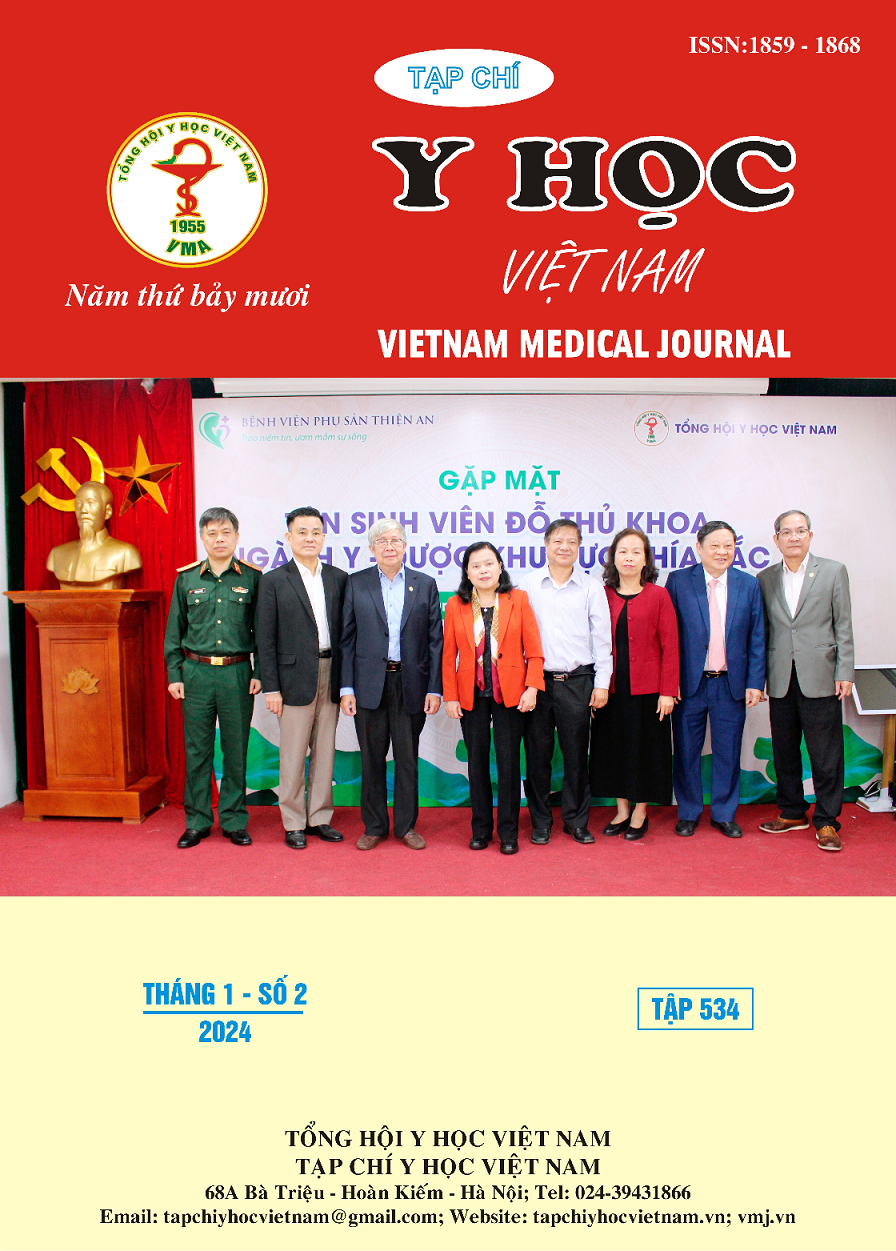SOME FACTORS RELATING TO COGNITIVE IMPAIRMENT AFTER TRAUMATIC BRAIN INJURY SURGERY
Main Article Content
Abstract
Objective: To assess some factors related to cognitive impairment after traumatic brain injury surgery at Thai Binh General Hospital. Method: A descriptive cross-sectional study was conducted among 80 patients suffered from traumatic brain injury undergone surgeries at Thai Binh General Hospital during the period from June 2022 to June 2023. Results: 80 patients including 69 males, 11 females. The ratio of males to females was approximately 6.27/1. The average age was 44.36±15.68 years old. Occupation: farmer (51.2%), worker (32.5%). Traffic accidents were the most common cause with 65.0%. Mild TBI (80.0%). Chronic subdural hematoma accounted for (30.0%). Many factors were able to cause postoperative cognitive impairment such as: cause of accident, level of TBI, focal neurological deficits, acute subdural hematoma, treatment lasted more than 14 days, sequelae after traumatic brain injury. This study's multivariable logistic regression analysis showed that patients with sequelae when discharged had a higher risk of cognitive impairment than the group without sequelae, with p<0.05, OR: 8.360. Conclusion: Group of patients with sequelae after traumatic brain injury surgery have a higher risk of cognitive impairment than the group without sequelae.
Article Details
References
2. Cao Mạnh Long, Hồ Thị Kim Thanh, Trần Khánh Toàn. (2022). Giá trị của trắc nghiệm đánh giá trạng thái tâm thần tối thiểu (MMSE) trong sàng lọc sa sút trí tuệ ở người cao tuổi tại cộng đồng. Nghiên cứu y học, 149(1), 229-236.
3. Nguyễn Kinh Quốc, Vũ Anh Nhị. (2005). Khảo sát thang điểm Mini-mental state examination (MMSE) trên người Việt Nam bình thường. Y học TP Hồ Chí Minh, 9, 121-126.
4. Nguyễn Văn Vy Hậu, Nguyễn Hải Thủy, Hoàng Minh Lợi. (2019). Nghiên cứu rối loạn thần kinh nhận thức qua thang điểm MMSE và MoCA trên bệnh nhân đái tháo đường type 2 có suy giảm nhận thức. Nội tiết và Đái tháo đường, 37, 74-82.
5. Vương Thị Thủy, Đoàn Thị Như Yến, Lương Thị Mai Loan, và cộng sự. (2022). Nghiên cứu đặc điểm lâm sàng và một số yếu tố liên quan đến suy giảm nhận thức ở bệnh nhân tâm thần phân liệt thể paranoid tại bệnh viện tâm thần Hải Phòng năm 2021. Y học Việt Nam, 515 (Tháng 6, số đặc biệt).
6. Nguyễn Hương Quỳnh, Nguyễn Văn Tuấn, Dương Đại Hà, và cộng sự. (2021). Đặc điểm lâm sàng rối loạn ý thức ở bệnh nhân chấn thương sọ não. Y học Việt Nam, 507 (tháng 10, số 2).


